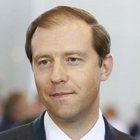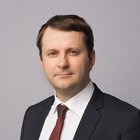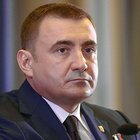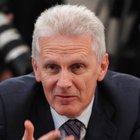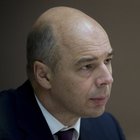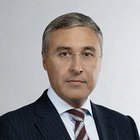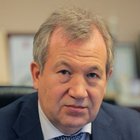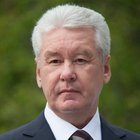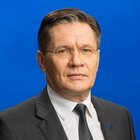Taking part in the meeting were First Deputy Prime Minister Denis Manturov, Deputy Chief of Staff of the Presidential Executive Office Maxim Oreshkin, presidential aides Alexei Dyumin and Andrei Fursenko, Finance Minister Anton Siluanov, Minister of Science and Higher Education Valery Falkov, President of the Russian Academy of Sciences Gennady Krasnikov, Moscow Mayor Sergei Sobyanin, Commander of the Space Forces – Deputy Commander-in-Chief of the Aerospace Forces Alexander Golovko, Director General of the Roscosmos State Corporation for Space Activities Dmitry Bakanov, Head of the National Research Centre Kurchatov Institute Mikhail Kovalchuk, Director General of State Atomic Energy Corporation Rosatom Alexei Likhachev, Chairman of the Science and Technology Council of the Commission on Military-Technical Cooperation – Deputy Chairman of the Board of the Commission on Military-Technical Cooperation Andrei Tyulin, and Rector of Bauman Moscow State Technical University Mikhail Gordin.
* * *
Opening remarks by President of Russia
President of Russia Vladimir Putin: Colleagues,
Today, our focus is on the long-term development of the national space industry. Addressing this topic always carries a special responsibility to the pioneers of space exploration, to those who set the highest standards for us.
Just recently, on April 12, together, we marked Cosmonautics Day, a day when the first human travelled to space – a feat accomplished by our compatriot Yury Gagarin. The memory of his achievement continues to unite all generations of our citizens.
I would like to once again congratulate on this holiday industry veterans, cosmonauts, servicemen of the Russian Aerospace Forces, and all personnel of state enterprises, private space companies (and we now have these as well, thankfully), employees of scientific organisations and universities, and, of course, the team of the legendary Bauman University, where this meeting is taking place. Among its alumni are a whole constellation of renowned cosmonauts, prominent scientists, and designers.
In our day and age, the best personnel training traditions are being developed and enriched, with the new campus involved in this effort, as we have seen. It creates up-to-date conditions for acquiring relevant competencies. We will certainly implement projects like this one in other cities across Russia.
You may have noticed the brief conversation that took place as we toured the premises of Bauman University and became acquainted with the students and post-graduate students.
I ask the Government and Roscosmos to focus on the proposals put forward during the conversation and analyse them thoroughly. These young people have many good ideas; they understand the tasks facing the industry and believe that youth should make a greater contribution to implementing the space programme. We cannot but agree with this. I once again ask to support these ideas.
In this regard, I would like to remind you that I have spoken about the cosmonauts, an entire galaxy of cosmonauts who graduated from Bauman University; an entire space crew, if I am not mistaken, once included its graduates and researchers. Let me remind you that Sergei Korolev was also a Bauman graduate. He not only took a course of studies but also designed a light aircraft as his graduation project. Three decades later, as is commonly known, he and a team of like-minded people propelled Russia towards leadership in space. This demonstrates that this university has rich and fundamental traditions.
Today, our plans in this crucial area should be commensurate with our country’s historical status as a foremost space power. It is essential to boost the potential of the Russian space industry so that it becomes a flagship and a key driving force of our entire national development, the technological upgrading of the economy, and a rise in living standards.
It is this logic that motivated our discussion in October 2023 on the need to draw up a comprehensive, systemic national project in the area of space exploration. This project should encompass all fields of priority importance for Russia, from creating our own multi-satellite clusters of various profiles in orbit and a national space station to drafting deep-space exploration programmes.
In March, I had a meeting with Dmitry Bakanov, the Roscosmos chief – he is present here and will speak too – and we agreed that the new national project will be approved shortly, ensuring full financial support for it as part of the effort to draft the federal budget for 2026 and the subsequent years until 2028. Today, I would like to hear how the work on this key aspect of the national project is proceeding.
Colleagues, I would like to draw your attention to several key issues that require special focus.
First and foremost, the national project must clearly and precisely articulate both the short- and long-term goals of Russia’s space programme. This will allow us to immediately set concrete tasks for science, education and personnel training – areas which, I stress, are essential for the successful implementation of all technological leadership projects.
It is also crucial to define clear investment benchmarks for tech companies. Together with the business sector, we must begin forming a full-fledged industry of space-based communication, navigation, and satellite data services by 2030. To ensure the quality and accessibility of such products and services, we must have our own cutting-edge, competitive solutions.
In this regard, I believe it is absolutely necessary that the dedicated national project provides targeted support for national universities, research institutes, design bureaus and private companies already engaged in developing platform-based solutions for multi-satellite constellations. This includes the creation of mathematical modelling and data processing methods, the development of instruments and components, optical equipment, and technologies aimed at significantly reducing the cost of space launches.
Another important area is Russia’s nuclear space power capability. The national project must enable real progress in this field. I am referring to the development of electric propulsion systems and other technologies required for autonomous operation on various space objects.
At first glance, these may appear to be long-term ambitions, but in reality, all major spacefaring nations are actively working on these subjects in practical terms. Let me add that nuclear power units developed by Soviet scientists have already been operated in orbit. And today, with the development of advanced materials and new technologies, we now have fundamentally new and expanded opportunities to implement such complex projects.
Russia’s undisputed leadership in this area must continue to grow. In this context, I suggest that we discuss today the core parameters for developing a space system equipped with a specialised power station, along with the so-called space tug, a transport and energy module based on a nuclear-powered propulsion system. These are large-scale initiatives being carried out with the leading involvement of Roscosmos, Rosatom, and the Kurchatov Institute.
Furthermore, a key direction of the national project for the development of space activities should be fundamental research in deep space. Russia has already made significant advances in this domain and is implementing important programmes. Chief among them is the Spektr-RG orbital observatory – a true space laboratory producing a detailed map of the universe.
Just to remind you, Russia has unique research schools studying the Moon, Mars and other planets. For example, our national technology for landing spacecraft on Venus, which I mentioned during my meeting with students today, has not been recreated or copied anywhere in the world to this day. What did I say the surface temperature was, 500 degrees Celsius, isn’t it?
President of the Russian Academy of Sciences Gennady Krasnikov: The temperature is 450 degrees Celsius and the surface pressure is 70 atmospheres.
Vladimir Putin: To round it up, it is about 500 degrees. Anyway, nobody has repeated our achievement so far.
I would like to ask President of the Russian Academy of Sciences [Gennady] Krasnikov to give a detailed account of the research areas to be included in this national project, the tasks we need to formulate, and the additional solutions we need to find for their successful realisation.
Colleagues, we all know very well that all space projects are complicated and involve major financial investment, but they are vitally important for Russia to remain a large sovereign country and to continue to develop in this capacity.
I would like to emphasise that it is important to identify understandable and stable sources of funding for the national space programme, because our development in the decades ahead depends on our achievements in space exploration. At the same time, the knowledge we acquire and the technologies we create in the process must be converted without fail into advanced research aimed at achieving national goals, developing the Arctic, and building up our defence capability.
Overall, the national space project should become a cross-cutting cumulative national project aimed at attaining technological sovereignty. It should accelerate the implementation of many fundamentally new technological solutions, including information transfer based on quantum and photonic technologies, facilitate the development of robotics, advanced materials, microelectronics, and biological and medical technologies, and expedite the creation and deployment of unmanned vehicles.
I would like to add that Russia’s technological achievements, primarily in the exploration of deep space, could become our considerable contribution to international programmes. We are open to such cooperation, and we are ready to implement joint projects. We will certainly discuss the format of such cooperation with our partners in the other space powers.
Let us get down to work. The floor goes to [Roscosmos CEO] Dmitry Bakanov.
<…>







